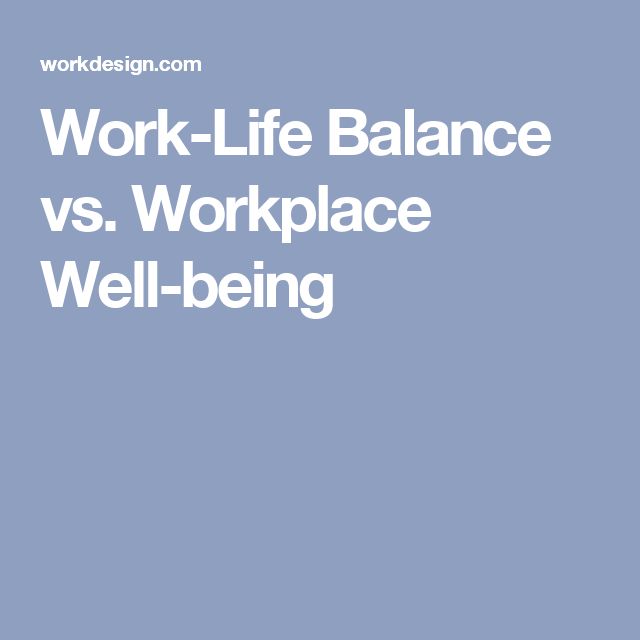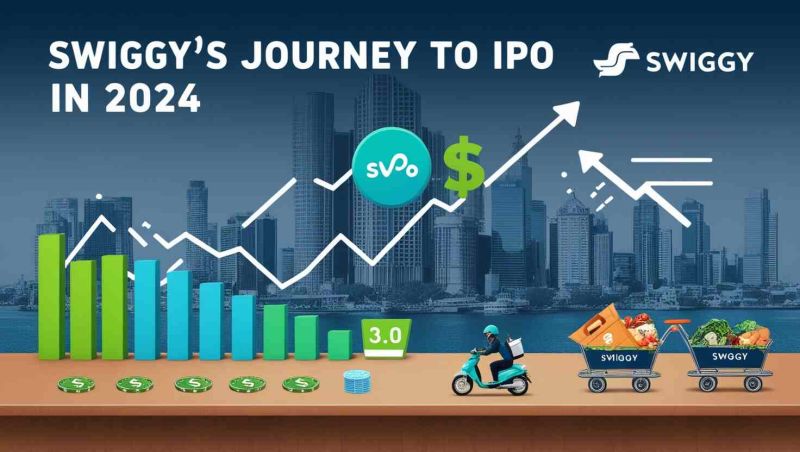Is Everyone Replaceable? A Look At The Evolving Workplace Power Balance

Table of Contents
The Myth of Complete Replaceability
The notion that every employee is easily replaceable is a dangerous oversimplification. While automation and AI are transforming industries, the truth is far more nuanced.
The Unique Value of Every Employee
Each employee brings a unique blend of skills, experiences, and perspectives to their role. These elements are often difficult, if not impossible, to quantify but are crucial to a company's success.
- Intangible Skills: Creativity, critical thinking, problem-solving, emotional intelligence, and leadership are all invaluable skills that are difficult to replicate through automation. These soft skills are often the differentiating factor between a good employee and a great one.
- Institutional Knowledge and Experience: Years of experience within a company translate to invaluable institutional knowledge. Understanding company culture, navigating internal processes, and possessing a deep understanding of client relationships are all intangible assets that are hard to replace quickly.
- Diverse Perspectives: A diverse workforce brings a wider range of perspectives and ideas, fostering innovation and creativity. This diversity of thought is essential for navigating complex challenges and adapting to changing market conditions. Replacing an employee also means potentially losing this unique perspective.
The Limitations of Automation and AI
While automation and AI are rapidly advancing, there are significant limitations to their capabilities. They are not yet capable of replicating the full spectrum of human skills and abilities.
- Complex Problem-Solving and Critical Thinking: Many jobs require complex problem-solving and critical thinking skills that go beyond the capabilities of current AI technology. Human judgment and intuition are still essential in many situations.
- Emotional Intelligence and Interpersonal Skills: Building strong relationships with colleagues, clients, and stakeholders requires emotional intelligence and interpersonal skills that are currently beyond the scope of AI.
- Human Oversight and Judgment: Even highly automated systems require human oversight and judgment to ensure accuracy, efficiency, and ethical considerations. Humans are still necessary to monitor, manage, and improve these systems.
Factors Increasing Employee Replaceability
Several factors can increase an employee's vulnerability to replacement. Understanding these factors is crucial for proactive career management.
Lack of Specialized Skills and Continuous Learning
In a rapidly changing job market, a lack of upskilling and reskilling can make employees vulnerable. The ability to adapt to new technologies and acquire new skills is crucial for long-term career success.
- Lifelong Learning: Continuous learning is no longer optional; it's a necessity. Employees must actively seek opportunities to expand their skill sets and stay abreast of industry trends.
- Adapting to Technological Changes: The rapid pace of technological change demands adaptability. Employees must be willing to learn new software, tools, and processes to remain competitive.
- High-Demand Skills: Focusing on developing skills in high-demand fields, such as data science, cybersecurity, and AI, can significantly enhance job security.
Poor Performance and Lack of Adaptability
Consistently subpar performance and an inability to adapt to changing work environments are significant risk factors. Employers are more likely to replace employees who are not meeting expectations or adapting to new challenges.
- Performance Indicators: Regular performance reviews and feedback are essential for identifying areas for improvement and addressing performance gaps.
- Proactive Adaptation: Employees must actively seek opportunities to learn new technologies and processes, demonstrating a willingness to adapt to change.
- Continuous Improvement: A commitment to continuous improvement, including seeking feedback and implementing changes, is crucial for long-term success.
Company Restructuring and Downsizing
Organizational changes, such as restructuring and downsizing, can significantly impact job security. These changes are often driven by economic factors, technological advancements, or mergers and acquisitions.
- Economic Downturn: During economic downturns, companies may reduce their workforce to cut costs.
- Technological Advancements: Automation and AI can lead to job displacement in certain sectors.
- Mergers and Acquisitions: Mergers and acquisitions often result in redundancies and workforce reductions.
Factors Decreasing Employee Replaceability
Conversely, certain factors can significantly reduce an employee's vulnerability to replacement. These are often related to building value beyond simply performing tasks.
Strong Relationships and Networking
Building strong relationships with colleagues, clients, and mentors is a crucial aspect of career longevity. These relationships can provide valuable support, opportunities, and insights.
- Mentorship: Seeking mentorship can provide valuable guidance and support for career advancement.
- Networking: Actively networking with colleagues, industry professionals, and potential employers can open doors to new opportunities.
- Positive Professional Relationships: Building strong, positive relationships with colleagues and clients enhances collaboration and overall productivity.
High-Demand Skills and Expertise
Possessing specialized skills and expertise in high-demand fields can significantly enhance job security. These skills make employees more valuable and less easily replaced.
- Data Science, Cybersecurity, AI: These are just a few examples of high-demand fields where specialized skills are highly valued.
- Continuous Learning and Professional Development: Investing in continuous learning and professional development is essential for staying ahead of the curve and maintaining competitiveness.
Proactive Career Management
Proactive career planning and development are essential for ensuring long-term job security. This involves actively pursuing opportunities for advancement and skill development.
- Career Advancement Strategies: Developing a clear career path and actively seeking opportunities for advancement within the company or industry.
- Networking and Building Connections: Expanding your professional network through attending industry events and engaging with colleagues and mentors.
- Continuous Learning and Upskilling: Continuously investing in your skills and knowledge to remain competitive and adaptable.
Conclusion
Are you replaceable? The answer is not a simple yes or no. While the threat of automation and economic shifts is real, not everyone is equally vulnerable. Factors influencing replaceability include the unique skills and experience you bring, your adaptability to change, and the overall dynamics of your company. However, proactive career management, continuous learning, and building strong relationships are essential for mitigating this risk. Don't let the question of replaceable employees haunt you – take charge of your future today by investing in continuous learning and developing in-demand skills. Become an irreplaceable asset in your field.

Featured Posts
-
 The Impact Of Kelly Ripas Absence On Live Mark Consuelos Perspective
May 13, 2025
The Impact Of Kelly Ripas Absence On Live Mark Consuelos Perspective
May 13, 2025 -
 Gimenez Juega Ac Milan Vs Atalanta Fecha Hora Y Donde Ver
May 13, 2025
Gimenez Juega Ac Milan Vs Atalanta Fecha Hora Y Donde Ver
May 13, 2025 -
 Tory Lanez Prison Stabbing Update On Singers Condition Following Attack
May 13, 2025
Tory Lanez Prison Stabbing Update On Singers Condition Following Attack
May 13, 2025 -
 Islanders Win 2025 Nhl Draft Lottery Sharks And Blackhawks Follow
May 13, 2025
Islanders Win 2025 Nhl Draft Lottery Sharks And Blackhawks Follow
May 13, 2025 -
 Filmy Festivalya Kino Na Sluzhbe Otechestvu Vzglyad Na Sovremennoe Patrioticheskoe Kino
May 13, 2025
Filmy Festivalya Kino Na Sluzhbe Otechestvu Vzglyad Na Sovremennoe Patrioticheskoe Kino
May 13, 2025
Latest Posts
-
 Disneys Snow White A Hilarious Failure Im Db Rankings Reveal All
May 14, 2025
Disneys Snow White A Hilarious Failure Im Db Rankings Reveal All
May 14, 2025 -
 Chime Ipo A Deep Dive Into Revenue And Digital Banking Disruption
May 14, 2025
Chime Ipo A Deep Dive Into Revenue And Digital Banking Disruption
May 14, 2025 -
 Im Dbs Worst Disneys Snow White Joins The Ranks Of Hilariously Bad Movies
May 14, 2025
Im Dbs Worst Disneys Snow White Joins The Ranks Of Hilariously Bad Movies
May 14, 2025 -
 Chimes Us Ipo Filing Revenue Growth And Digital Bankings Future
May 14, 2025
Chimes Us Ipo Filing Revenue Growth And Digital Bankings Future
May 14, 2025 -
 Did Political Correctness Sink Snow White Analyzing The Box Office Results
May 14, 2025
Did Political Correctness Sink Snow White Analyzing The Box Office Results
May 14, 2025
